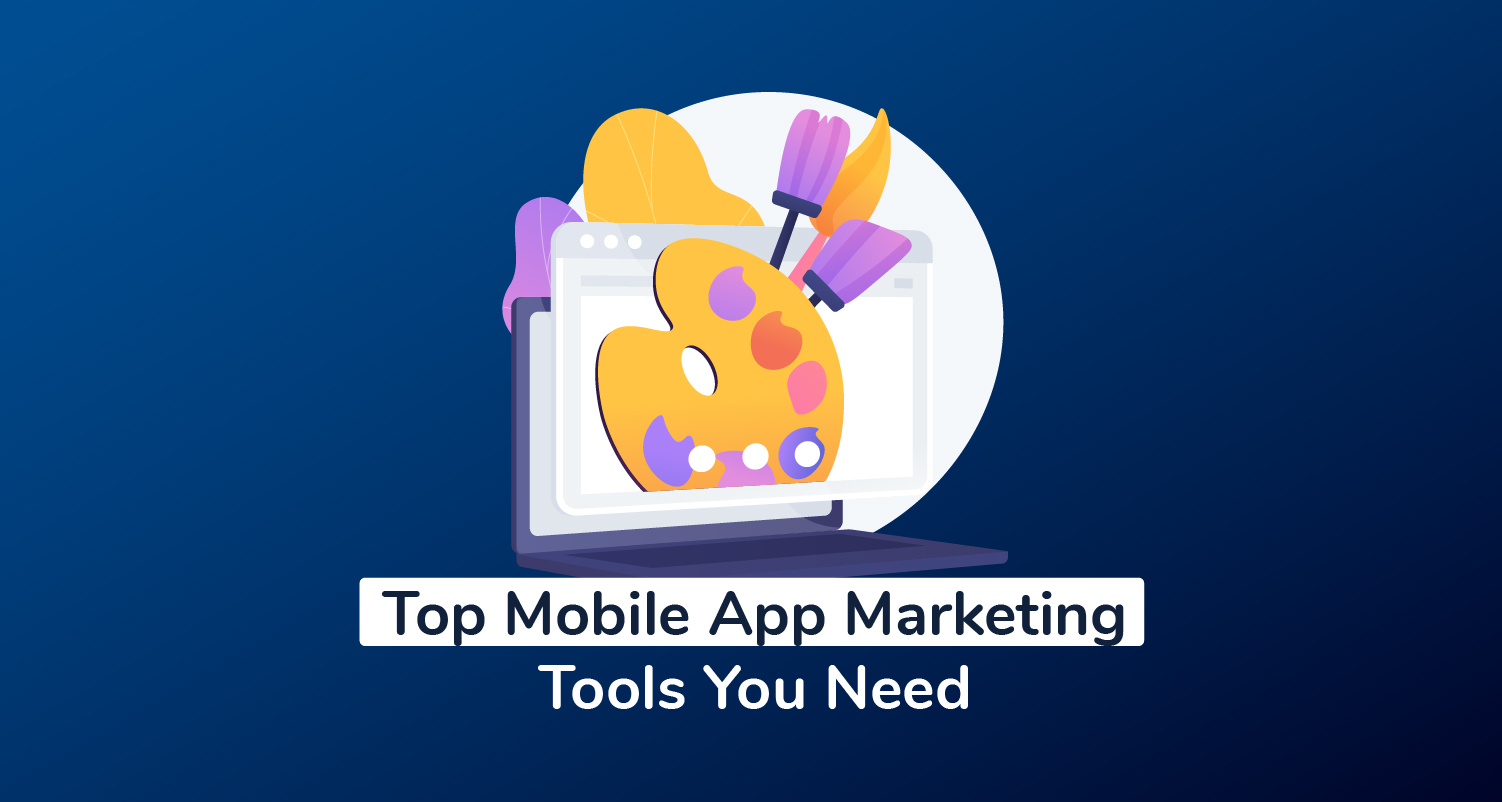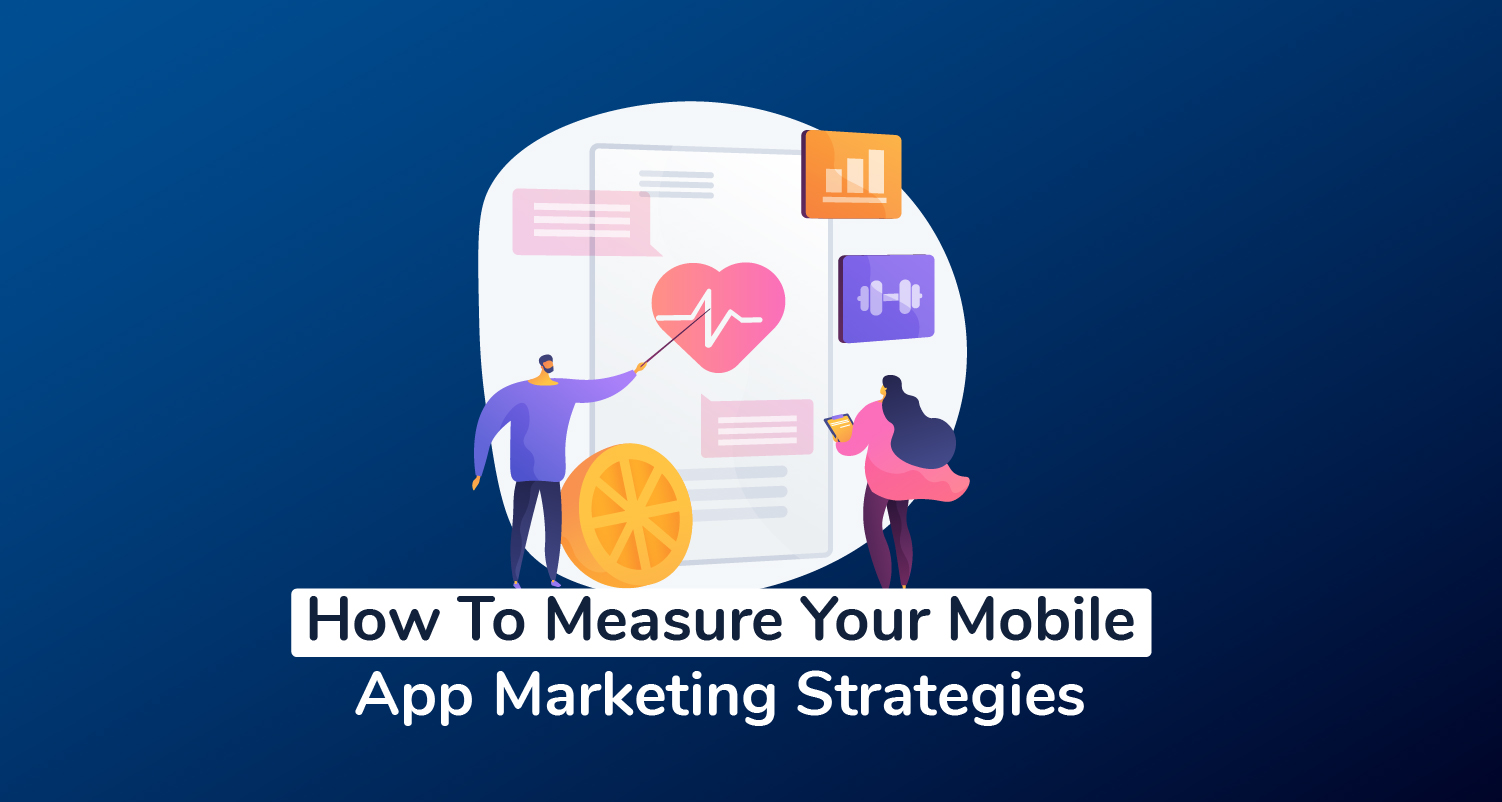
The Ultimate Mobile App Marketing Strategies For 2025

Imagine competing against only 500 other apps on the market. Sounds like a dream, right? You probably wouldn’t even need an extensive app marketing strategy.
Believe it or not, that was the landscape back in 2009 when Apple launched App Store. Even Google only had a handful of apps on the Play Store, back when it was called “Android App market” in 2008.
Things suddenly picked up when users started discovering the sheer power of smartphones. Four years later, in 2013, Apple made a milestone announcement that it had surpassed 1 million apps in their App Store. Google Play Store subsequently followed suit in a few months, and they also made a press release after hitting the 1 million apps mark.
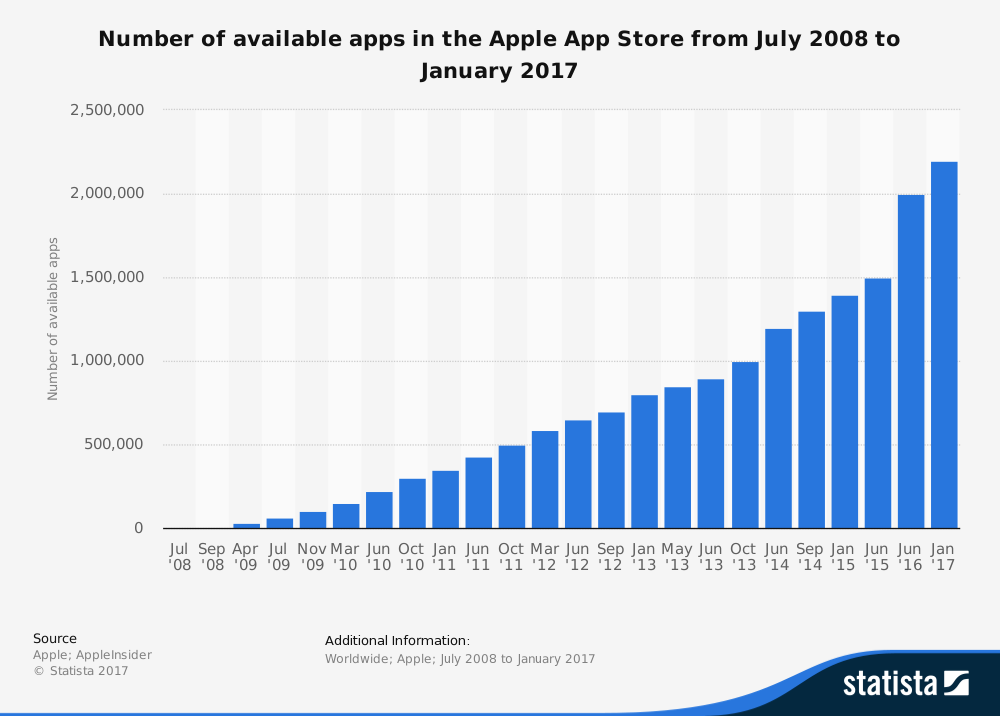
Well, retrospectively, that has complicated issues for developers and app marketers. Promoting apps has become a different ball game altogether, especially when you consider current numbers- 2.2 million on App Store, and 3.3 million on Play Store.
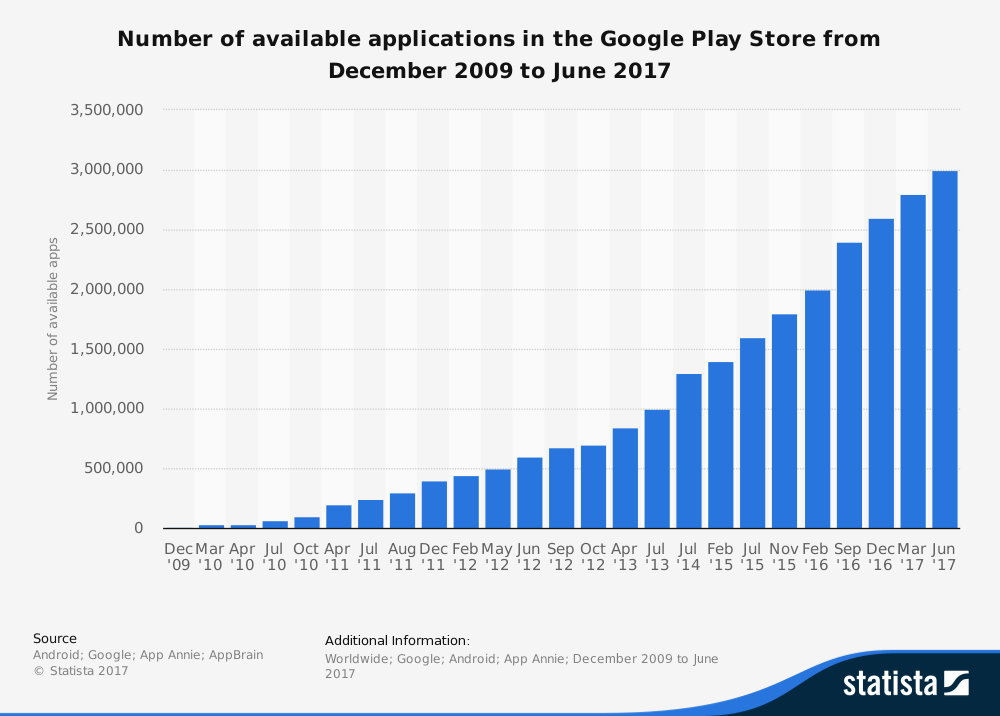
But then again, we’ve seen an exponential growth of users, which has consequently triggered increased app downloads and usage. As a result, app earnings have recently been growing steadily, as opposed to 4 years ago, when numbers were just starting to pick up. As of June 2017, app developers on the App Store had cumulatively made $70 billion.
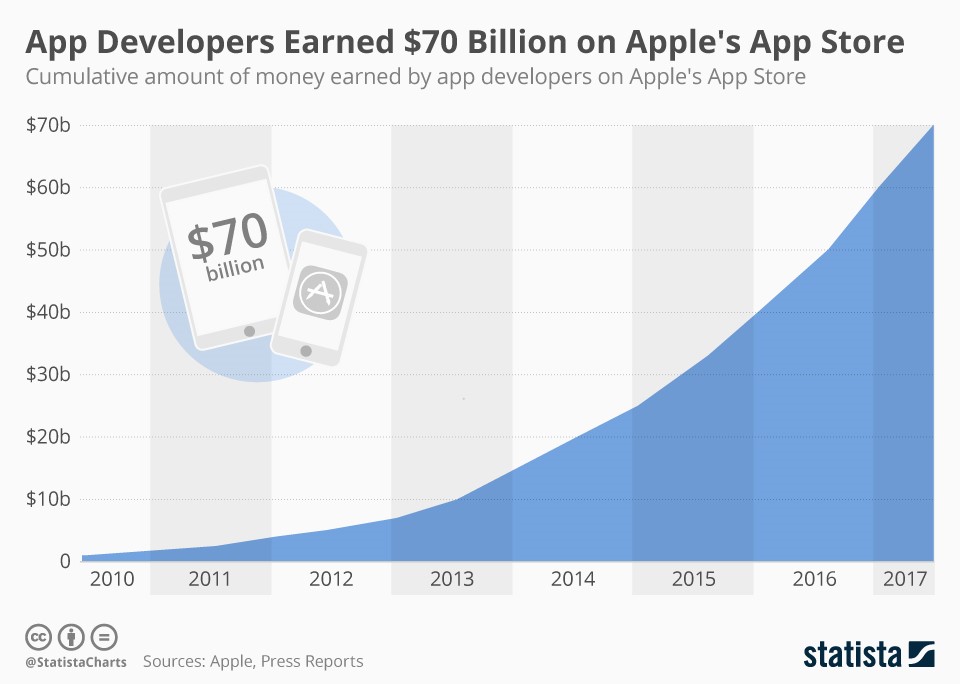
Now, imagine what they stand to make in 2018, through to 2020, when the number of active apps shoot to 5 million.
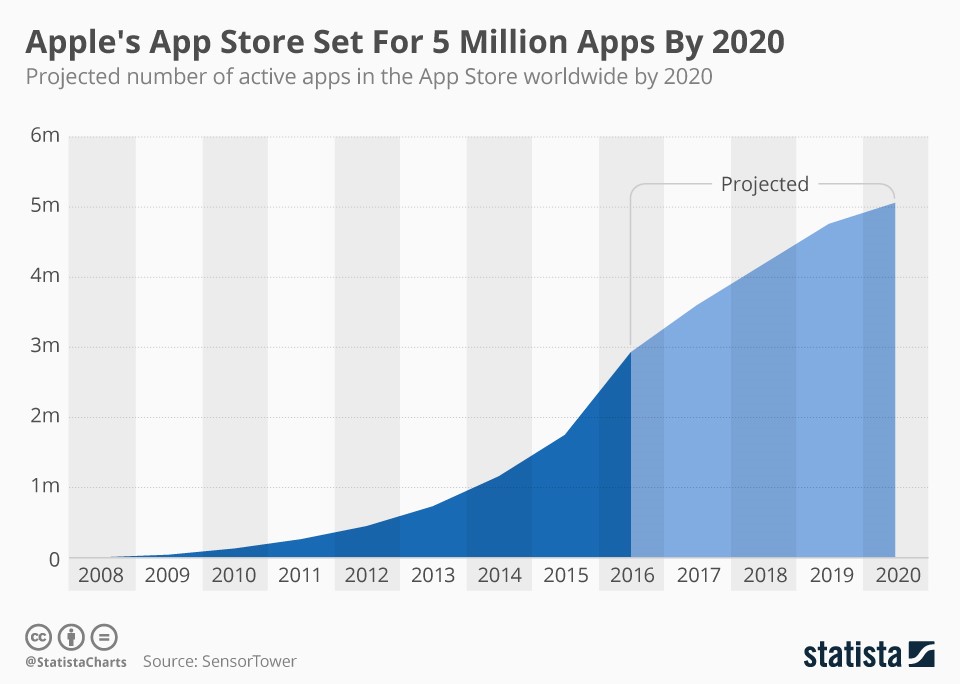
But how are you supposed to compete against 5 million other apps? Sounds scary, right? That’s literally almost the population of Chicago and Los Angeles combined.
We’ll let you in on the biggest secret….start early. 2018 promises a plethora of refined and effective tactics to reinforce your app marketing strategy. We’ve taken the time to critically assess past marketing strategies, and subsequently test them on various levels with different audiences to understand exactly what they respond to.
But, where do you begin? What will app marketing in 2018 be all about?

Pre-Launch Mobile App Marketing Strategies
Recently, Elon Musk, the CEO of Tesla, took to the stage and unveiled a surprise– a roadster that will soon be the “fastest production car ever made”. Problem is, we’ll have to wait till 2020 to have the car.
With such a product, Elon could have still waited till 2020 to launch it. But he understood the importance of creating hype around it way before the official launch date. And that, ladies and gentlemen, is what we call “pre-launch marketing”- a strategy that can be equally, and possibly more effective as part of your mobile app marketing strategy in 2018.
1. Develop a pre-launch website and collect emails
Unlike Elon, you don’t have an expansive audience that can be called for press conferences anytime. So, you need to rally an audience around your brand before you even begin thinking about an app press release.
The best way to do so is building a solid, well optimized website. It’ll act as your ground zero for attracting traffic, and collecting email addresses of potential prospects.
2. Establish pre-launch content
On U.S Election night 2012, Nate Silver, someone who was little known till 2008, linked his new book in a tweet that later went viral. Two days later, his book, “The Signal and the Noise: Why So Many predictions Fail- But Some Don’t”, was number 2 on Amazon. Then it later became number 6 on The New York Time’s list of best sellers.
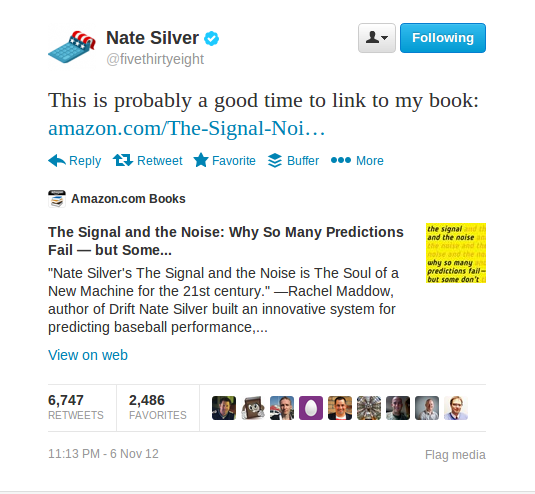
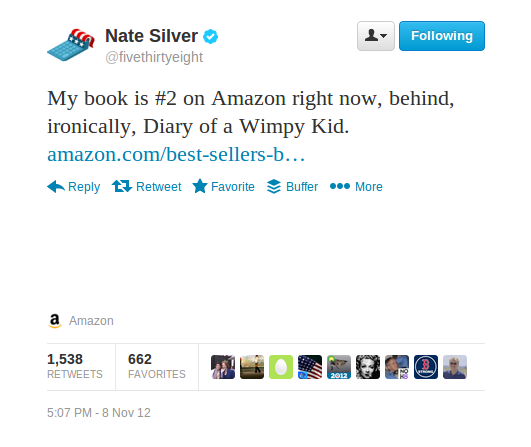
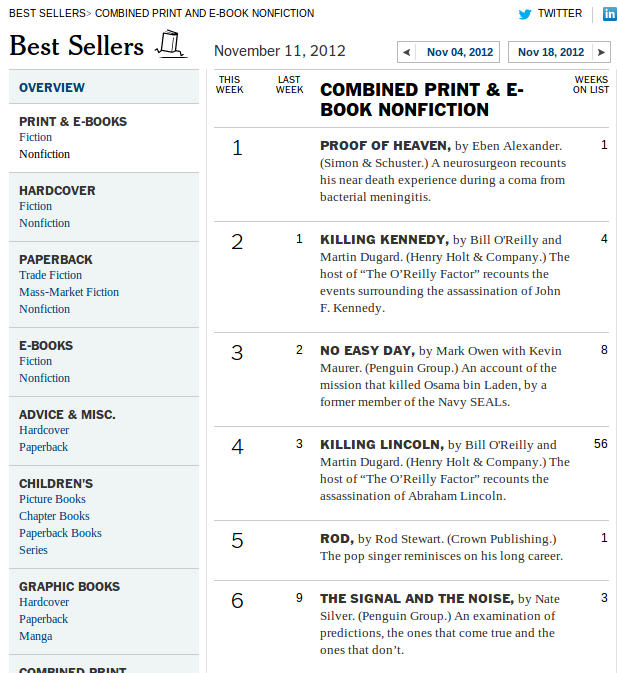
What catapulted Nate to the top was the influence he had developed after establishing himself as an authority. He had accurately predicted both 2008 and 2012 U.S. presidential elections.
The keyword here is “AUTHORITY”. To attract a similar following, you need to establish yourself as an authority in the mobile app space through timeless, valuable web content.
3. Consider a soft launch
Of course you can’t be certain about how users will react to your app, reception rate, and possible subsequent bugs. That’s one reason why you need to consider a soft launch before the big one.
So, to effectually gauge your audience and potential app reception, do a small scale launch covering a limited region like part of Canada, the U.S, or U.K.
4. Introduce your app to media sites and reviewers early
One clever way of doing a soft launch is releasing the app to known media sites and app reviewers. This will not only help your app gain traction thanks to the buzz, but bloggers, reviewers and journalists will appreciate the chance to check out the app’s features before its official launch date.
5. Develop teaser videos or trailers
One extremely effective pre-launch marketing strategy Hollywood persistently leverages is distribution of teaser videos or trailers. Thanks to the resultant buzz, a movie like Avatar for instance, managed to rake in over $3 billion in revenue after being produced on a $237 million budget.
With the prevalence of videos across the internet, this tactic is now being used across multiple industries, including mobile applications. To take advantage of it, develop a creative teaser app demo video, and post it across all the major social major platforms.
Mobile App Marketing Strategies
Let’s now look at the precise after-launch app marketing services you should be getting from your marketing agency in 2018:
1. Social Advertising
Social advertising is a one-of-a-kind strategy because it allows you to target prospects specifically according to interests and demographics.
Facebook, for example, has a 147,000 square feet data center in Oregon, and is planning to expand it by another 160,000– consequently making it larger than two Walmart stores. These servers have exactly what businesses and organizations are paying top dollar for- tons of personal information.
Thanks to such data, you’ll be able to zero in and create awareness among prospects who really matter the most. This will consequently save you a lot of time and resources, which would otherwise have been wasted on an audience that would not be particularly interested in your app category.
2. Viral App Video Marketing
The ting goes skraaaaa!
If that resonates, you definitely know a thing or two about the potential of viral videos. Michael Dapaah, a comedian popularly known as “Big Shaq” has made quite a fortune after a rather silly but creative rap video that phenomenally went viral. And the funny thing is, everyone is still talking about it.
Now, imagine the sheer exposure you’d be enjoying if your app was contextually named or revealed in such a video.
Effective viral app video marketing requires guts and creativity. In the end, it could possibly generate more traffic than all the other marketing channels combined.
3. App Store Optimization
Ok, so you can’t count on just viral marketing, social media, and email engagement to win you app downloads. While other app marketing strategies bring traffic to your app page on the App Store, you still need comprehensive app store optimization to progressively convert them into actual downloads.
App Store Optimization, if done well, also substantially increases visibility within the App Store. With over 180 billion cumulative app downloads, traffic won by your marketing strategies on other platforms is very insignificant compared to the overall average App Store traffic. So it only makes sense to leverage ASO to beat your competition in scavenging available traffic.
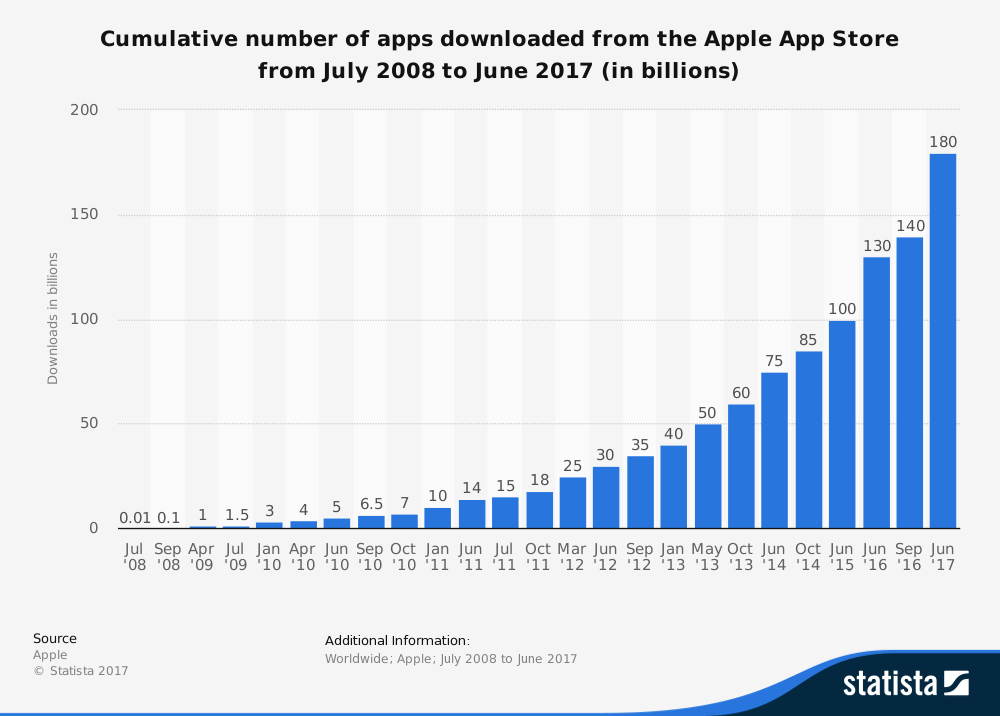
In addition to carefully selecting popular keywords, app store optimization requires you to;
- Localize your page.
- Go with a great name
- Create great app preview videos.
- Develop a compelling app description.
- Pick a low competition app category.
- Create a relevant and beautiful icon.
- Capture captivating screenshots.
4. PR Outreach
One thing reviewers enjoy, is getting exclusive insight into a new product or service, especially if there’s a lot of buzz around it. Reaching out to such journalists for a press release, therefore, should be beneficial to all parties- your app gets free publicity, and journalists enjoy the limelight for fresh, exclusive pieces.
When pitching an app PR to the press, ensure all the principle points are clearly captured. Avoid technical jargon that would bore readers, and develop a good story that would not only keep the audience glued, but also communicate main app features in a creative manner.
Most importantly, focus on journalists and review sites with a solid following. Since identifying and reaching out to them could be extremely cumbersome, leave the heavy lifting to app marketing agencies.
Preapps, for instance, has established good networks over the years, and can easily get your press release published in leading online and offline publications.
5. Email Marketing
Although social media marketing has been steadily catching up, email marketing is arguably still king of digital marketing. As a matter of fact, 77% of consumers prefer receiving permission based promotional emails as opposed to social media, phone, text and direct mail.
That’s probably why 80% of marketing professionals claim that email marketing is their biggest customer retention trigger- way ahead of social media, which was backed by only 44%.
Since you’ve already started developing a mailing list from the pre-launch website, identifying the right warm-prospecting audience shouldn’t be a problem at all. If done systematically and strategically, expect a conversion rate that exceeds 30%.
6. Website Leveraging
As we’ve previously mentioned, your website is your main operations base. The App Store is just a third party platform for hosting and distributing your app.
The best thing about all this is that websites are not as limited as the App Store. Therefore, you can engage pretty much any app marketing strategy- including those that are capped by Apple on the App Store. If your audience responds best to app demo videos for instance, you can post an unlimited number, covering multiple exciting features.
With mobile web searches having overtaken desktop, it’s now more important than ever to optimize your site for mobile use. This will consequently not only improve user interaction, but also provide a channel through which visitors can be conveniently directed to the app download page.
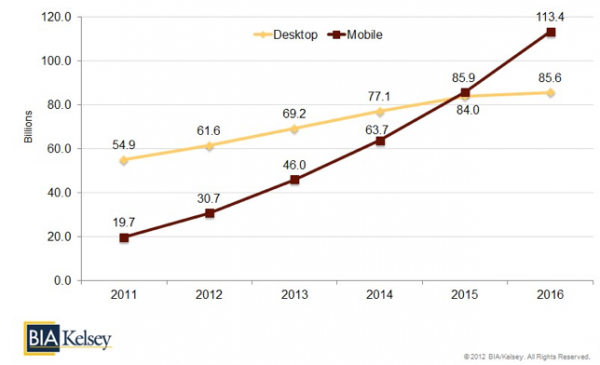
Conclusion
To recap:
- Promoting apps has become a different ball game altogether, especially when you consider current numbers- 2.2 million on App Store, and 3.3 million on Play Store.
- App earnings have recently been growing steadily, as opposed to 4 years ago, when numbers were just starting to pick up. As of June 2017, app developers on the App Store had cumulatively made $70 billion.
- 2018 promises a plethora of refined and effective tactics to reinforce your app marketing strategy.
- Pre-launch app marketing can be equally, and possibly more effective as part of your mobile app marketing strategy in 2018.
- To rally an audience around your brand before you even begin thinking about an app press release, build a solid, well optimized website.
- To attract a huge following, you need to establish yourself as an authority in the mobile app space through timeless, valuable web content.
- So, to effectually gauge your audience and potential app reception, do a small scale launch covering a limited region like part of Canada, the U.S, or U.K.
- One clever way of doing a soft launch is releasing the app to known media sites and app reviewers
- Develop a creative teaser app demo video, and post it across all the major social major platforms.
- Social advertising is a one-of-a-kind strategy because it allows you to target prospects specifically according to interests and demographics.
- Effective viral app video marketing requires guts and creativity. In the end, it could possibly generate more traffic than all the other marketing channels combined.
- App Store Optimization, if done well, substantially increases visibility within the App Store.
- Reaching out to journalists is beneficial to all parties- your app gets free publicity, and journalists enjoy the limelight for fresh, exclusive pieces.
- If email marketing is done systematically and strategically, expect a conversion rate that exceeds 30%.
- With mobile web searches having overtaken desktop, it’s now more important than ever to optimize your site for mobile use.
For maximum app performance and optimal revenue generation, you need a dedicated marketing team, as you worry about developing and supporting your app. The year 2018 is expected to be extremely competitive as the number of applications continue growing, and more app owners will begin leveraging multiple marketing strategies.
All things considered, it’s a jungle out there. Only experienced marketers who know just how to holistically and creatively implement effectual strategies stand a fair chance of outwitting the competition.
That’s why your best bet would be working with PreApps- the leading mobile app marketing and discovery platform, with over 3,250 mobile apps served, totaling over 550,000,000.
Let us know how you plan to strategize your app marketing, and past tactics you think will be effective this coming year…
Newsletter
Don’t miss a thing! Sign up to receive daily news
Subscribe Newsletter





